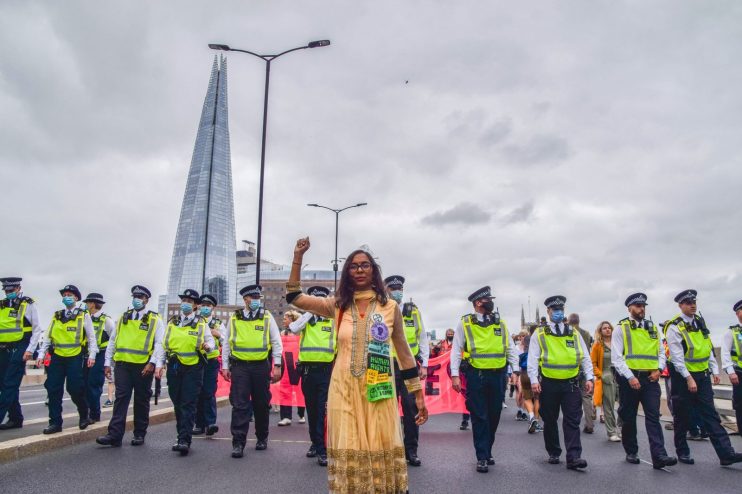While the lunatic fringe of Extinction Rebellion wages war on itself, the City does the green heavy lifting

To Extinction Rebellion’s list of enemies – of whom there are now so very many – we can now add the giant panda.
You might have thought that the endangered bamboo-bothering bear was an example of the dangers of environmental change. After all, there’s no question that human behaviour has led, in part, to their decline in the wild.
Alas, such nuance escaped one particular splinter wing of Extinction Rebellion this week, who chose to occupy the headquarters of the not-exactly fossil-fuel fetishists the World Wide Fund for Nature. Their issue was the organisation’s expansion of conservation land.
Make sense to you? No, us neither.
Such logical fallacies are at the heart of most of Extinction Rebellion’s protests, not least on the economy.
It is not enough to rein in carbon emissions; only when we ‘degrow’ can we truly be on the path to green. HS2 – for all of its rights and wrongs – must be cancelled, and instead people simply must stop travelling between Birmingham and London. Global capitalism and markets cannot merely pivot towards green finance and sustainability; the whole system must be overturned.
That latter has come into clearer focus this week, as the group attempts to shut down thoroughfares across the Square Mile. Bank Holiday Monday’s protest on Tower Bridge was less than impactful, for obvious reasons, but shutting down London Bridge for most of Tuesday afternoon was enough of a pain for people to take notice.
And notice they did – at the complete lack of willingness to engage with what the City is already doing to further the case of sustainability. Indeed one can make the case that the financial services industry is going green faster than any other.
It’s not just the boardroom chatter around ESG, but the climate-focussed funds and green loans that are changing the world far beyond the Square Mile. The so-called green transition is paid for not by worthy protests but cold hard cash, being channeled away from fossil fuels towards renewable development.
Indeed those protestors can do far more as a collective for the environment if they spent the time they used blocking up traffic to investigate where their pensions were being invested, and demand greener alternatives.
The historical evidence, too, suggests that it is economic growth that gives the space for more expensive renewable energy projects to come online, and for investment to find its way into greener projects. Much of the developed world is on a downward emissions curve despite economic growth – the developing world will follow, in time. Even in places like China and India, using fossil fuels as economic catch-up propellants, global financial institutions are pushing for more sustainable alternatives.
Extinction Rebellion are, of course, not known for their willingness to compromise, or to acknowledge there are shades of grey in every global argument. They are absolutists, and more power to their elbow for being so.
But they are not the voice of a generation, nor are they policy wonks. They have made their point, and their protests will wither once again at the end of the week. For all the sound and fury, it is the City of London doing more of the heavy-lifting.
